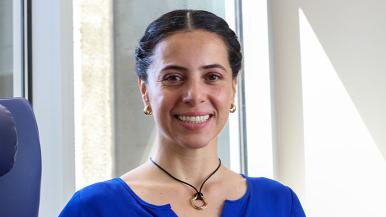I have been asked many times by colleagues, friends, family members and patients how I decided to embrace the journey of taking care of the LGBTQ+ community. I have always answered that it was a decision made out of love and passion, as I felt it was my calling.
Then I started to think more about my motives, and all I was able to think about was: Why not? I am a trained family physician who takes care of all people, so why wouldn’t all people include the LGBTQ+ community? Why was this population missing from my practice in the first place? Where did I go wrong? Why didn’t my residency training prepare me or give me the tools to serve a part of our communities?
I have always thought of myself as an advocate for all patients — the physician who was going to fight to eliminate health disparities. And yet there I was, a practicing, board-certified family physician, unaware of the challenges that some people were facing and how that was affecting their health, clueless on how some clinicians who take an oath to protect and do no harm were actually hurting these patients.
My heart began to ache, and it lit a spark that has inspired every move that I have made for the last five years. People being refused care or being mistreated because of who they are? Not on my watch!
'A place of support and respect'
I remember approaching my boss and mentor Steven Rothschild, MD, within the first months of starting at RUSH. He asked me to think about my career and where I wanted to take it, and when we met my answer was short: “I want our clinic to be an LGBTQ-friendly clinic. I want us to be a place of support and respect that provides excellent care to the LGBTQ+ community.”
He then introduced me to RUSH’s LGBTQ+ Council, where I met an amazing group of people who shared my vision and my passion, and that was the beginning of this wonderful fulfilling journey.
I did my research, I read books, articles, attended conferences, became a member of organizations that have been advocating for LGBTQ+ health and started to build my practice. I got involved in the development of Affirm: The RUSH Center for Gender, Sexuality and Reproductive Health, and with the help of my wonderful colleagues, I became more comfortable managing hormone-affirming therapy. Today I am the primary care lead for Affirm. I met other RUSH faculty who were doing projects that aligned with my goals of becoming a better doctor, and those colleagues encouraged me to learn more.
With Affirm’s team, we have delivered training to some of RUSH’s staff to make them more competent on transgender and gender nonconforming care. As an assistant professor who also teaches and work with medical students, I started to work with other colleagues to include gender affirming care in the medical school curriculum.
I am honored to serve this wonderful population that is often neglected or mistreated by the health care system. My goal now is not only to provide excellent care, but to train current practitioners and future physicians, so we can increase the workforce and provide support for the LGBTQ+ community.



